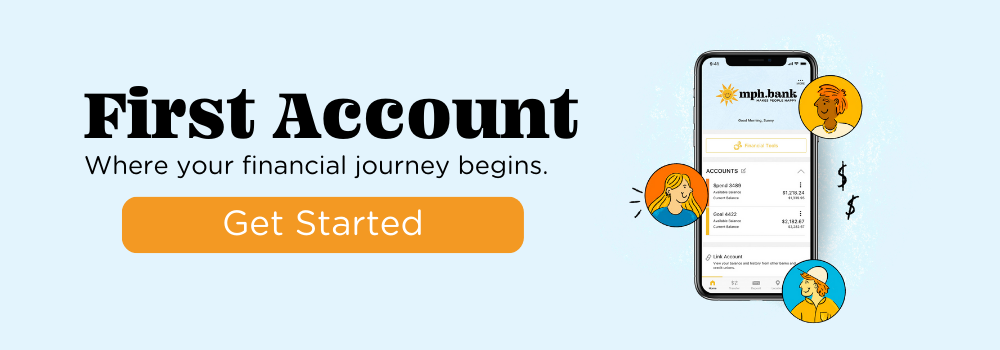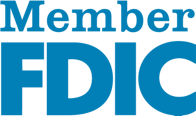It's never too early to get started with earning and managing your own money. Opening a bank account is an important financial step. However, if you're under 18, in many states you won't be able to get an account on your own.
Related Article: The Game of Money: How Board Games Can Teach Kids the Value of Money
Instead, you'll need to open your bank account jointly with a parent or legal guardian. This makes the process a little more complicated, but you still have plenty of options that offer great experiences.
Can A Minor Get a Checking Account?
While legal restrictions govern financial independence until adulthood, minors have several options for acquiring a checking account with the appropriate support. This article explores the available pathways for minors to access the banking system and build responsible financial habits.
Joint vs. Custodial Accounts:
There are two main types of accounts for minors: joint accounts and custodial accounts. Joint accounts allow both the minor and a parent or legal guardian to have shared ownership. This means that both parties have equal access to the funds in the account and can participate in transactions. On the other hand, custodial accounts designate the parent or guardian as the primary account holder, managing the funds on behalf of the minor until they reach legal adulthood.
Benefits Beyond Banking
Opening a checking account during your teenage years can provide you with more than just access to funds. It offers a valuable opportunity to learn how to budget, track expenses, and navigate the world of banking. Moreover, establishing a positive financial history now can greatly benefit you in the future when applying for loans, credit cards, and even college admissions.
Take these five steps to open a bank account as a minor (under 18).
1. Determine Your Goals
To choose the right bank account for you, make sure you're clear on what you plan to use the account for. There are several reasons you might need a bank account. You might have gotten your first job and need to be able to accept direct deposit payments. You might want to start saving for your future. Maybe you babysit or do other informal work and want a secure place to keep your money. You might want to switch to making everyday purchases on a debit card instead of with cash.
The right type of account will depend on your goals. Look for a checking or spend account with no monthly fees and no minimum deposits. Also look for an account that has an app that is easy to use and lets you manage and see your money grow.
If you want a bank account to use a debit card or make other transactions, you'll want to look at checking account fees to make sure you won't be charged extra for using your account. Linked checking and savings accounts can also be a good idea, since you'll be able to easily separate the money you need for different purposes.
2. Understand Account Types
There are two major types of accounts that minors can open. The first is a joint account that is jointly owned by you and an adult. You'll both be able to access the account, but the adult might be able to set limits on the transactions you can complete. This might include spending limits or alerts when you buy something with your debit card.
The second is a custodial account that you own but your parent controls. Depending on the state, you may be able to take control of the money in the account when you turn 18. In many states, the parent or legal guardian can continue to control those funds for much longer. Custodial accounts can be a good choice in some cases, but if you're taking the initiative to look into opening an account on your own, you'll probably prefer the access you'll get with a joint account.
3. Choose an Adult You Trust
Some banks require the co-owner of your joint account to be your parent or legal guardian. Others let you choose anyone 18 or older. This can be a good option if you have an older sibling, aunt or uncle or other adult that you'd prefer to give access to. It's important to understand that whoever co-owns your account will have access to your money. That's why you need to choose an adult that you trust and who cares about your financial well-being.
4. Compare Account Features
Make sure that your new bank account meets your needs, so you'll have an easy experience once it's open.
Online and Mobile Banking
Choose an account that lets you do everything you need online and through the bank's app. This includes checking your balance, monitoring transactions, depositing checks you get from relatives or employers, transferring money and can use a debit card to access your account.
Fees and Minimums
Look for an account that doesn't come with a monthly maintenance fee. This is an easy way to avoid losing your hard-earned money to unnecessary bank fees. Check the minimum deposit required, and make sure it's either nothing or very low.
You should also look at overdraft fees and consider opting out of “standard overdraft practices” that allows your debit card to continue to pay for purchases even when it will bring your account negative. Any time you see the word “overdraft protection” pay attention to the fine print! It may not be what you think it is. Look for options that will decline your transaction instead of letting your account go into the negative.
Parent Features
Accounts designed for teens usually have features that let your parent or other co-owner monitor and set limits on your spending. This can include transaction limits, transaction alerts and other similar features. Especially when you're dealing with money you've earned yourself, this can be frustrating. However, it's easy to overspend when you're first learning to manage your budget, so having some guidance can be helpful.
Before you open your account, it's a good idea to discuss these controls with your parent or other adult. Ideally, you'll be able to come to an agreement about restrictions that feel helpful and reasonable to both of you. Talking about this ahead of time can prevent conflict and frustration later.
Turning 18
Banks have different policies on what happens to your joint account once you turn 18. It might be closed or automatically converted to an individual account. You might also need to remove the co-owner from the account yourself, or require you and your co-owner to both approve the removal of the initial “adult” on the account.
Accounts that convert automatically are the most convenient. Whatever will happen with your account, have a conversation about it ahead of time to make sure you and your parent have similar expectations about how you'll manage your money as a new adult.
Look for an account that fits your requirements in all of these areas. Banks should have this information on their websites, or, if not on the website, then on the terms and conditions that are provided with the account. It may or may not be an easy comparison, but with a little work, you should be able to find all of the information you need.
5. Open Your Account
Once you've chosen the account you'd like to open, it's time to visit the bank or the bank website, if the bank allows online account opening for accounts with minors. Some banks require minors to open accounts in person even if they'll usually open accounts online. Other banks may require the adult to open the account and add you as a joint owner. You and your parent or co-owner will need to go in to open the account together.
Your parent will need a government-issued photo ID like a driver's license, state ID or passport. You may be able to bring a non-photo ID like your birth certificate or Social Security card instead. Both of you will be asked demographic information like address, email, mobile phone, home phone, occupation, employer, etc. Confirm the requirements before you head to the bank.
Opening a bank account before you turn 18 is a great way to manage your money and start building good financial habits. While you're comparing accounts, be sure to check out mph.bank's first account, which is designed for anyone ages 10-24 looking to get started with banking.
Why is money called dough?
Because we all knead it! Sign up to receive important information on banking, financial tips, and jokes like this directly to your inbox










